DOCS Academic Achievements Throughout the Years
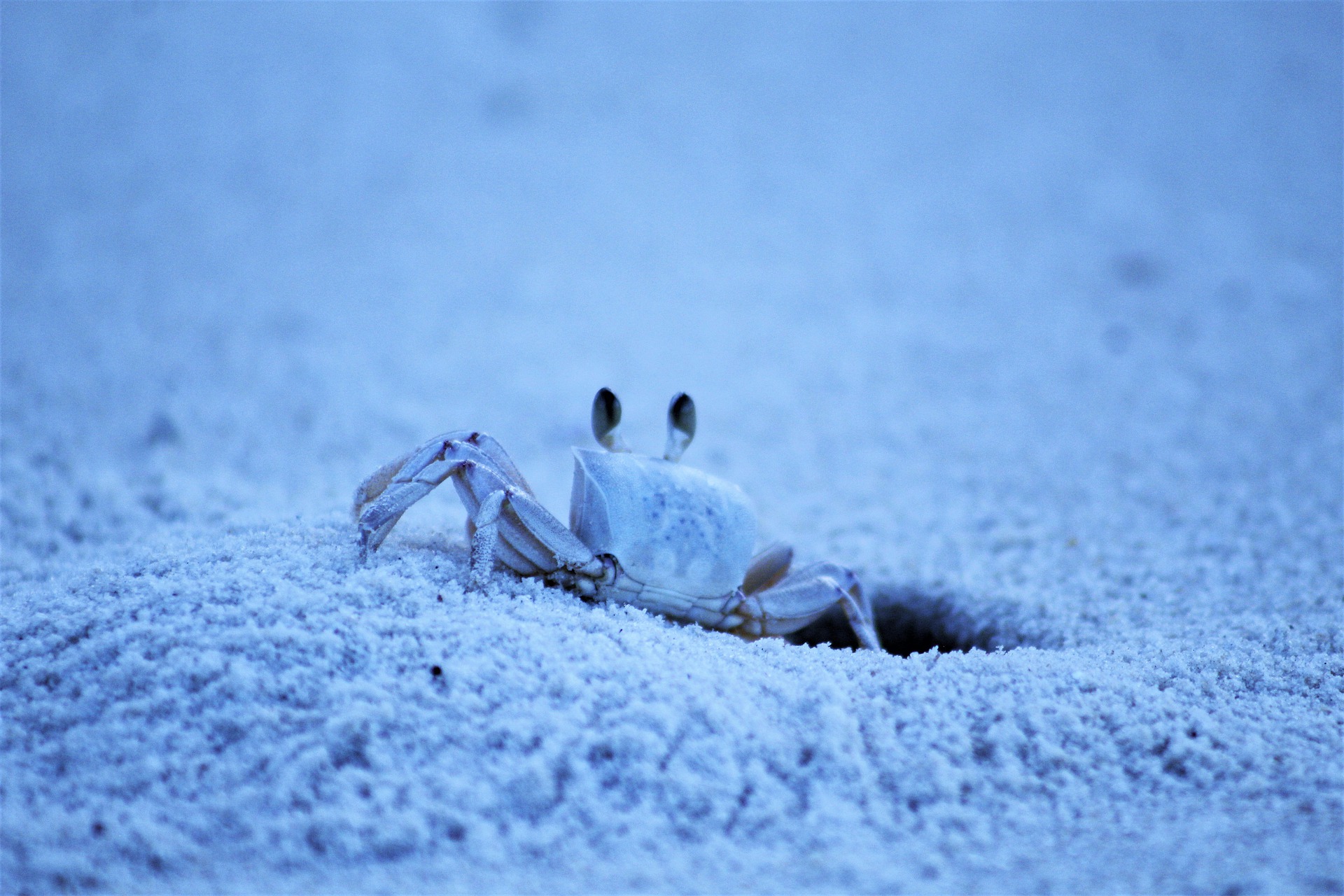
1968
The LSU Board of Supervisors authorized the establishment of the Dept. of Marine Sciences, which would offer MS and PhD degrees.
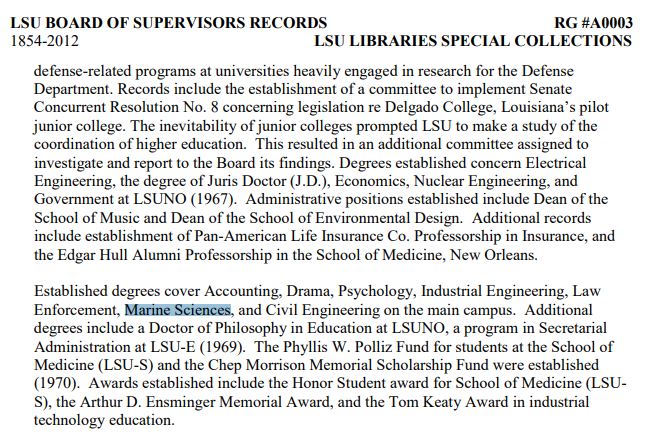
LSU Board of Supervisors records from 1854-2012 references the establishment of degrees in Marine Sciences in 1969.
– LSU Libraries Special Collections
1969
Students were admitted to the Department of Marine Science.
A graduate minor in marine science (later named oceanography and coastal sciences) was established.
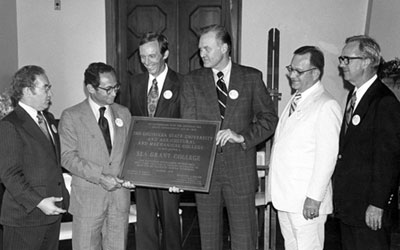
Louisiana State University is designated a Sea Grant College
– Louisiana Sea Grant
1970
LSU was designated as a Sea Grant university. Sea Grant and Marine Sciences were housed in the Center for Wetland Resources (CWR). CWR's research faculty were organized into three disciplinary groups: the Coastal Studies Institute (CSI), Coastal Ecology Laboratory (CEL), and Laboratory for Flooded Soils and Sediments.
The Marine Sciences program was endorsed by the Louisiana Coordinating Council for Higher Education.
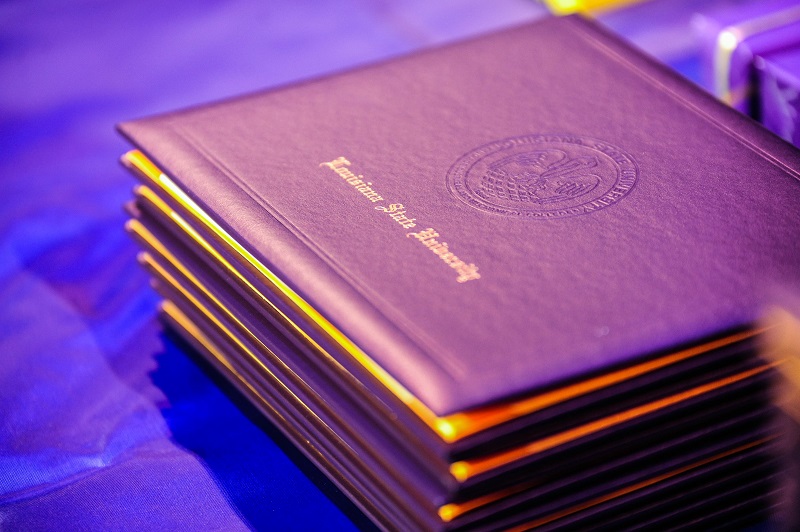
1971
The first MS and PhD in marine science were awarded.
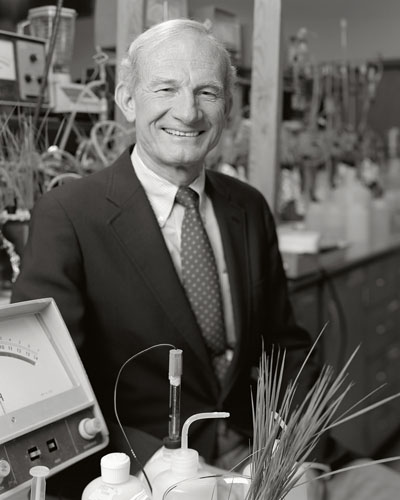
– LSU
1978
Marine Science Professor William H. Patrick, Jr. was named an LSU Boyd Professor.
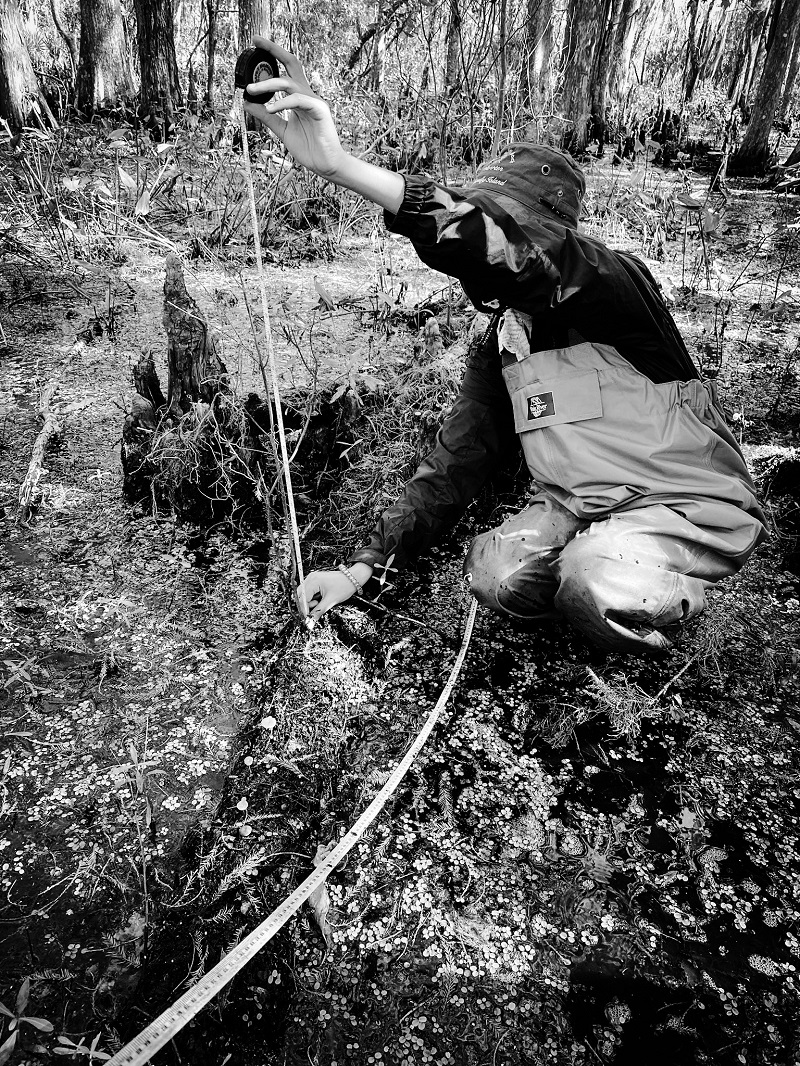
1979
The Coastal Ecology Laboratory became the Coastal Ecology Institute (CEI). The Coastal Fisheries Institute (CFI) was created. CEI and CFI were combined into the Coastal Ecology and Fisheries Institute (CEFI) and were housed in the Center for Wetland Resources.
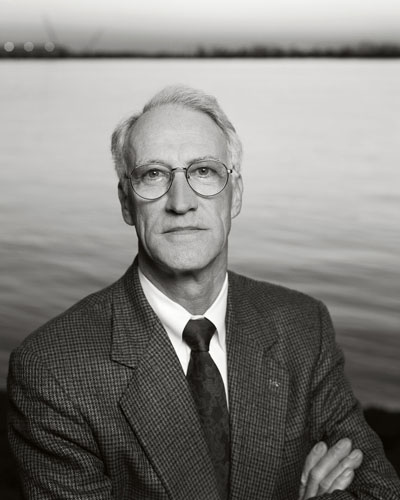
– LSU
1980
Marine Science Professor James H. Coleman was named an LSU Boyd Professor.

1985
In a reorganization, the university granted departmental faculty nine-month tenure/tenure-track appointments. Around this time, Marine Science transferred to the College of Basic Sciences and changed its name to the Dept. of Oceanography & Coastal Sciences (DOCS) in recognition of its expansion to include coastal oceanographic processes. The Coastal Fisheries Institute (CFI) separated from the Coastal Ecology Institute (CEI). These institutes remained under the Office of Research, eventually renamed the Office of Research & Economic Development (ORED).
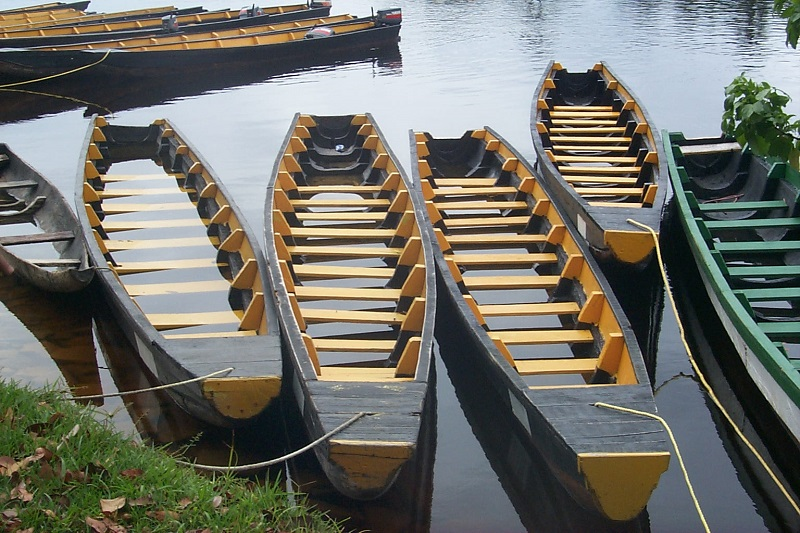
1992
DOCS left the College of Basic Sciences (eventually renamed the College of Science) and returned to the Center for Wetland Resources; renamed the Center for Coastal, Energy, and Environmental Resources (CCEER). Chip Groat served as the first executive director of CCEER, which represented the consolidation of DOCS and the Institute of Environmental Studies. CSI returned to CCEER.
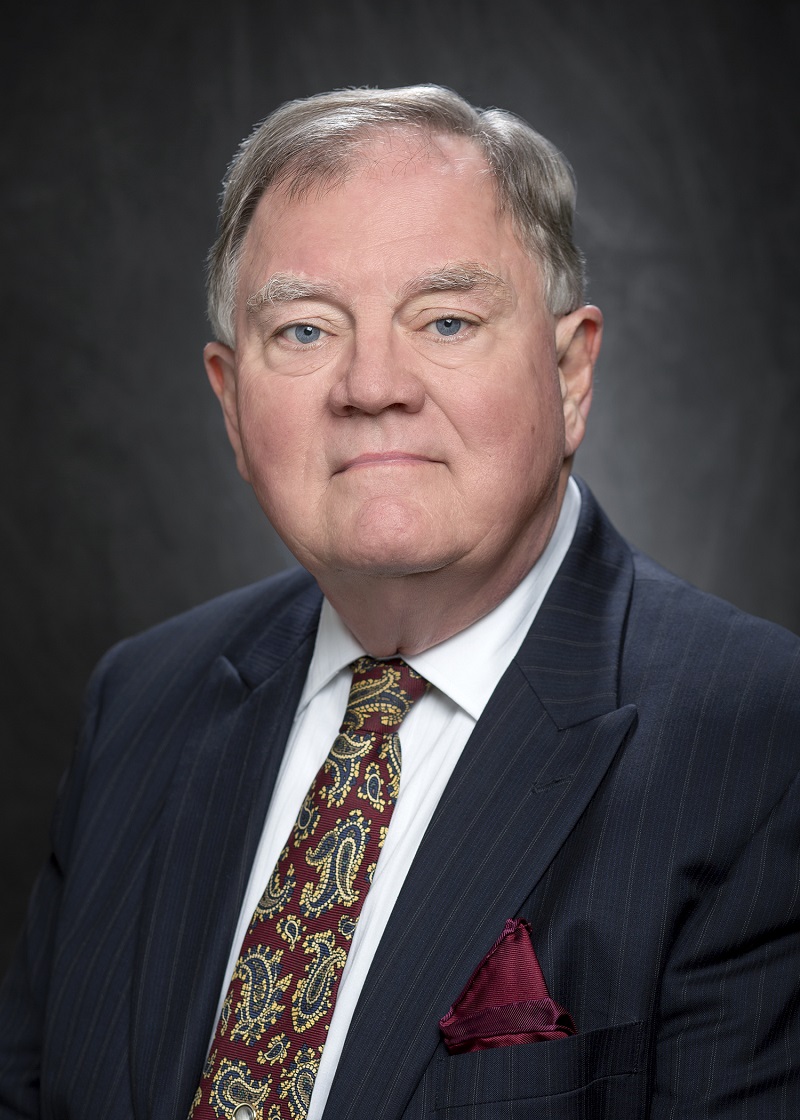
1995
Russ Chapman served as interim executive director of CCEER from 1995-1996 and executive director from 1996-2001.
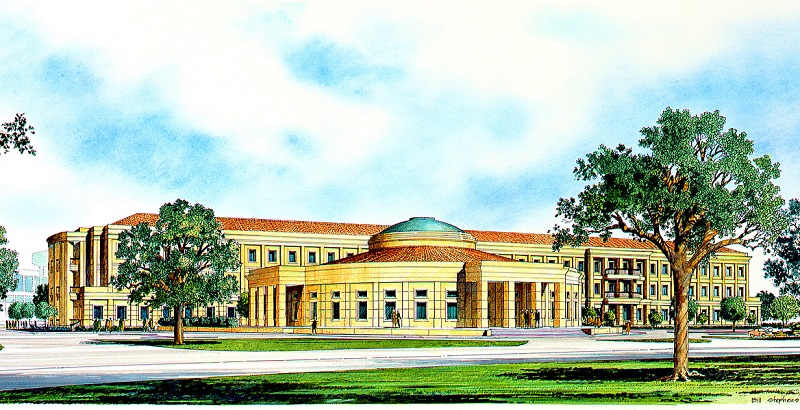
Concept illustration of the Energy, Coast & Environment Building
1999
Groundbreaking of the Energy, Coast & Environment Building.
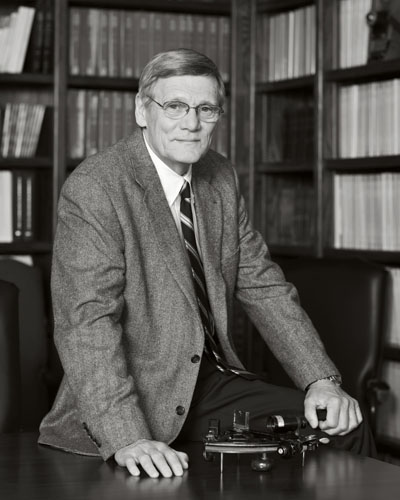
– LSU
2001
Academic and research units related to coastal and environmental science were combined into the School of the Coast & Environment (SC&E), replacing CCEER. SC&E included two departments, Environmental Studies (later renamed Environmental Sciences) and DOCS.
An undergraduate minor in oceanography and coastal sciences was established.
The SC&E Advisory Council was formed.
DOCS Professor Harry H. Roberts was named an LSU Boyd Professor.
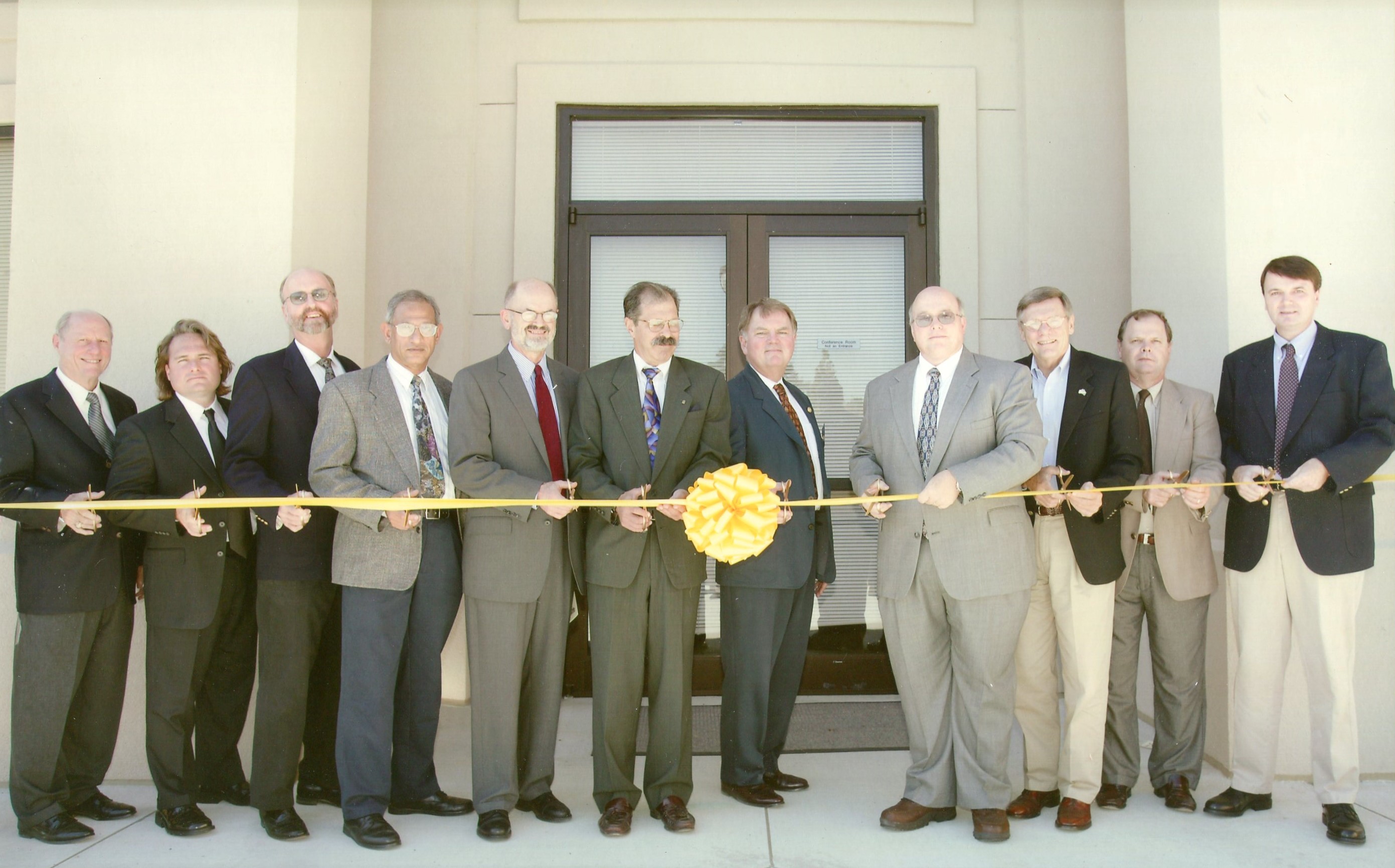
The Energy, Coast & Environment building ribbon cutting
– LSU College of the Coast & Environment
2003
SC&E moved into the new Energy, Coast & Environment Building.
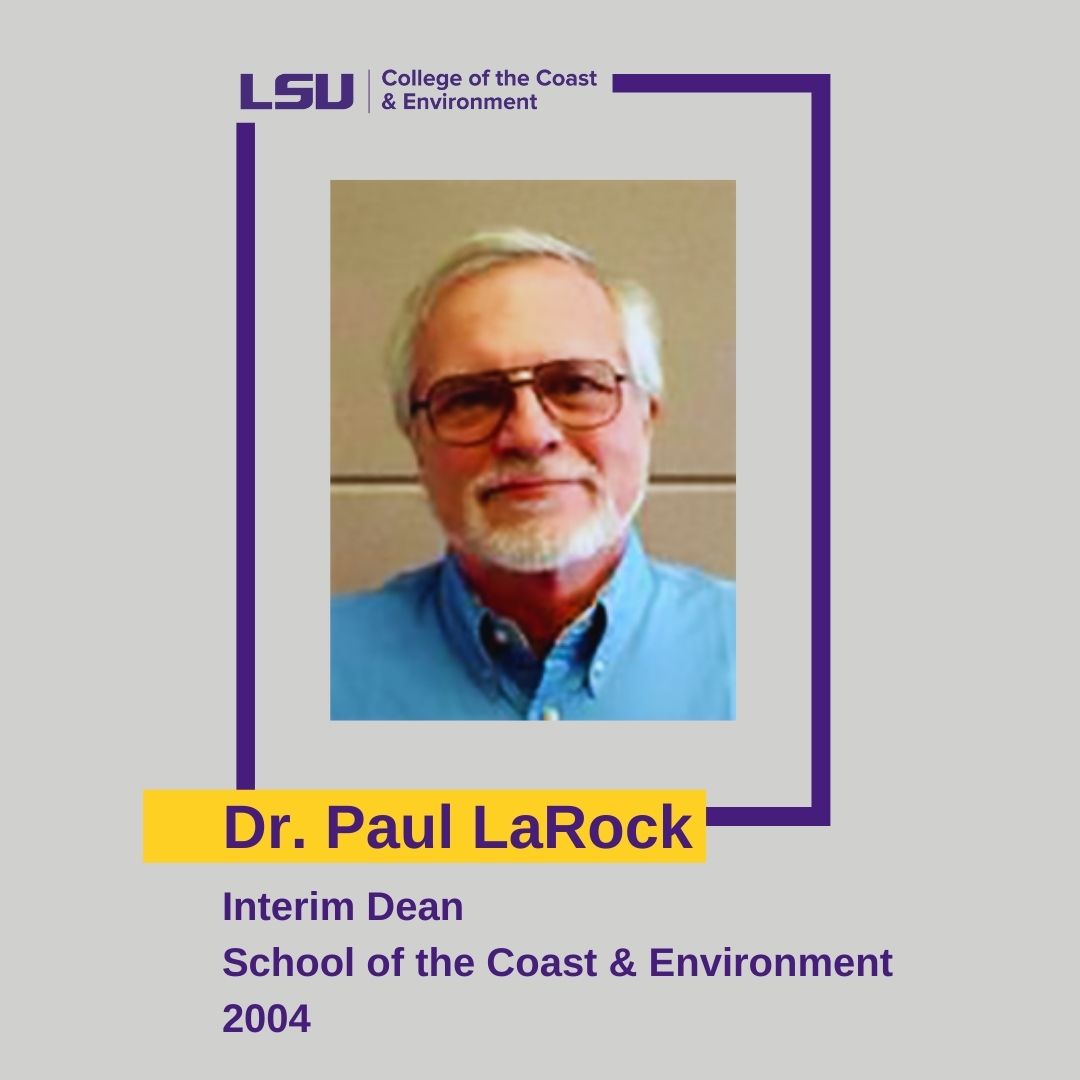
2004
Paul LaRock served as interim dean of SC&E until 2005.
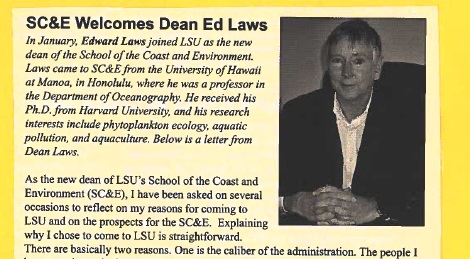
An article from the time of Laws' appointment reads: In January, Edward Laws joined LSU as the new dean of the School of the Coast and Environment. Laws came to SC&E from the University of Hawaii at Manoa, in Honolulu, where he was a professor in the Department of Oceanography. He received his PhD from Harvard University, and his research interests include phytoplankton ecology, aquatic pollution, and aquaculture.
2005
Edward Laws served as dean of the SC&E until 2008.
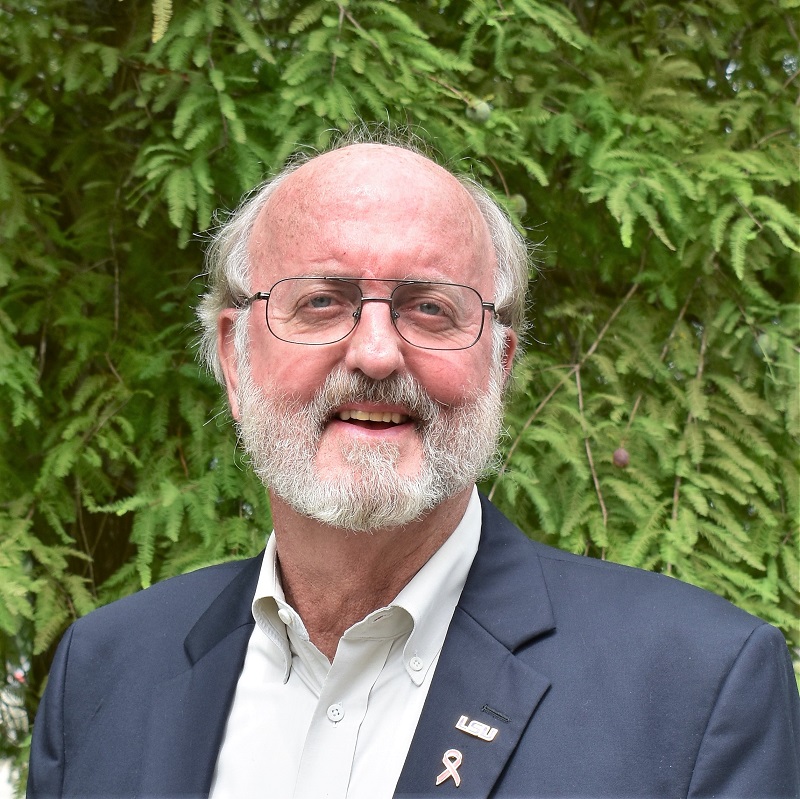
– LSU College of the Coast & Environment
2008
Richard Shaw served as interim dean of SC&E until 2009.
SC&E launched an undergraduate degree in Coastal Environmental Science (CES) and welcomed five students to the program. The program initially had two concentrations: 1) environmental science and research and 2) applied coastal environmental science.
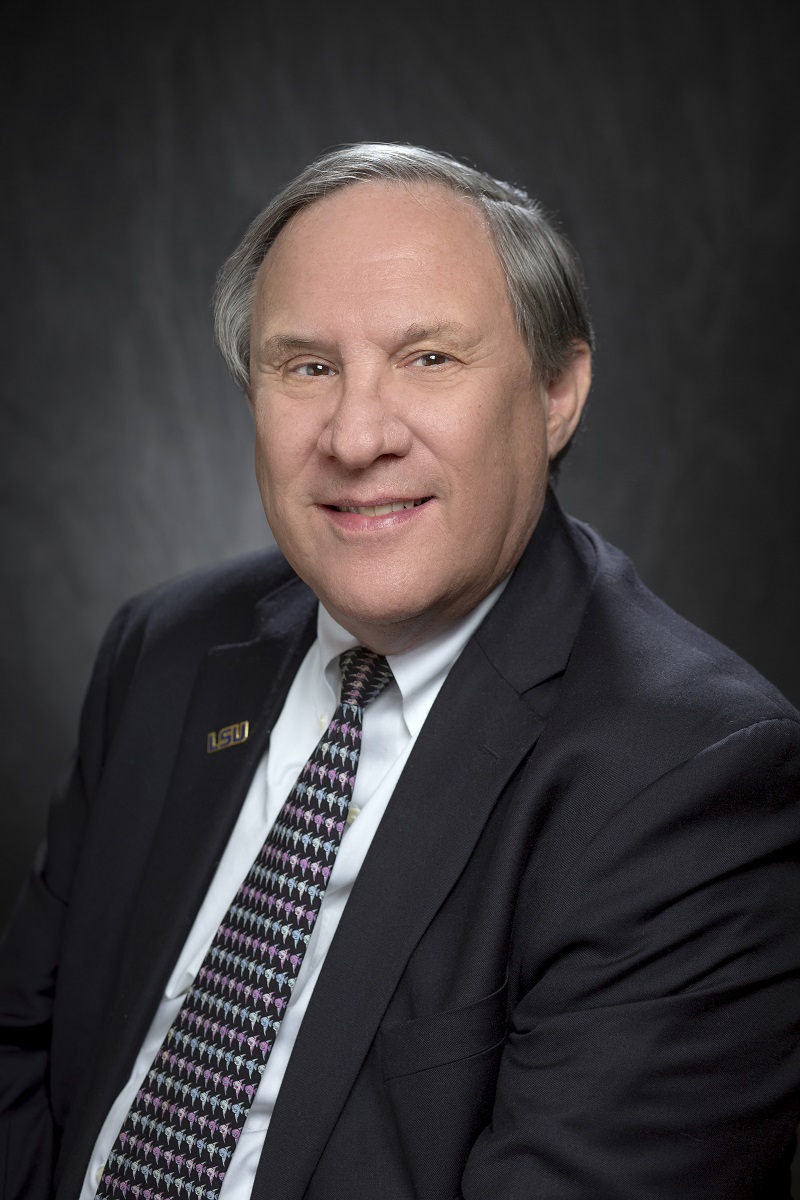
– LSU
2009
Christopher F. D’Elia became dean of SC&E.
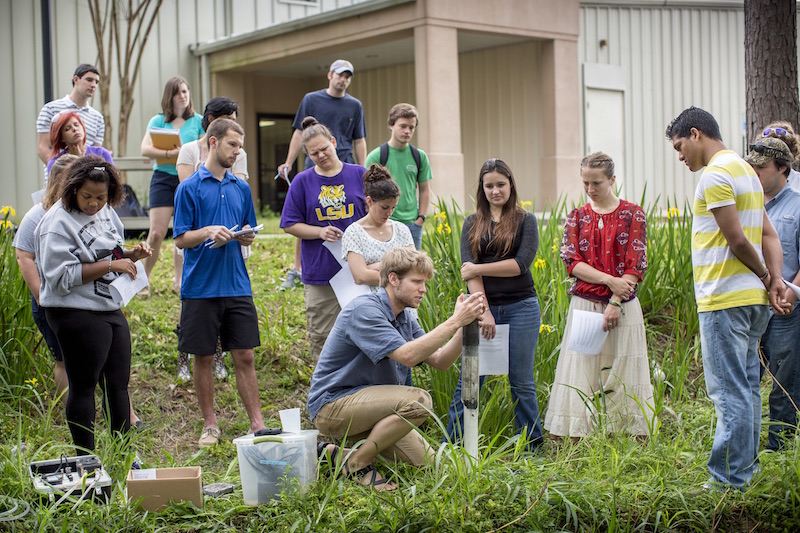
A group of students in a wetlands course conduct class outdoors
– LSU
2010
A graduate minor in Wetland Science and Management was established.

2012
A master’s in coastal and ecological engineering was established. This is a joint program with the College of Engineering.
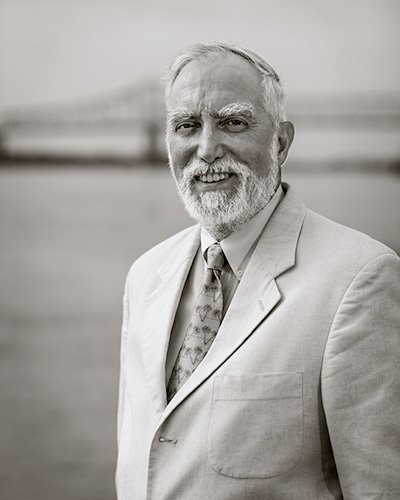
– LSU
2013
DOCS Professor R. Eugene Turner was named an LSU Boyd Professor.
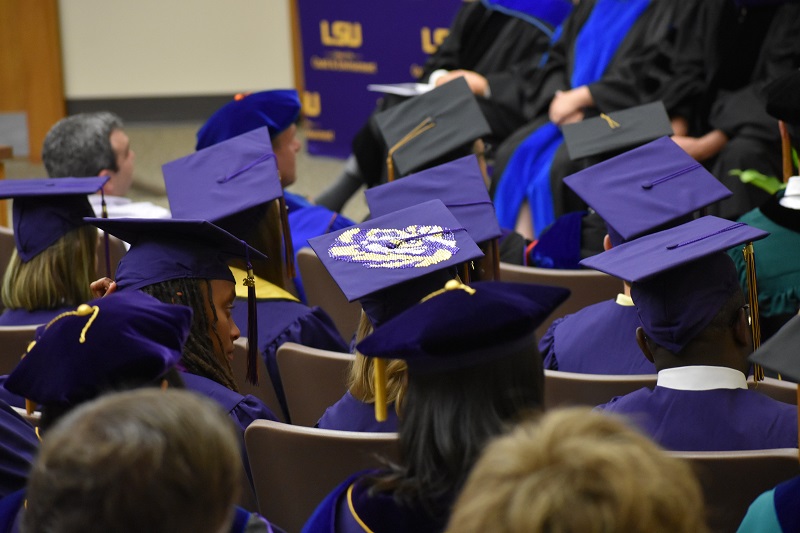
– LSU College of the Coast & Environment
2015
SC&E became the College of the Coast & Environment (CC&E) to better reflect its academic accomplishments.
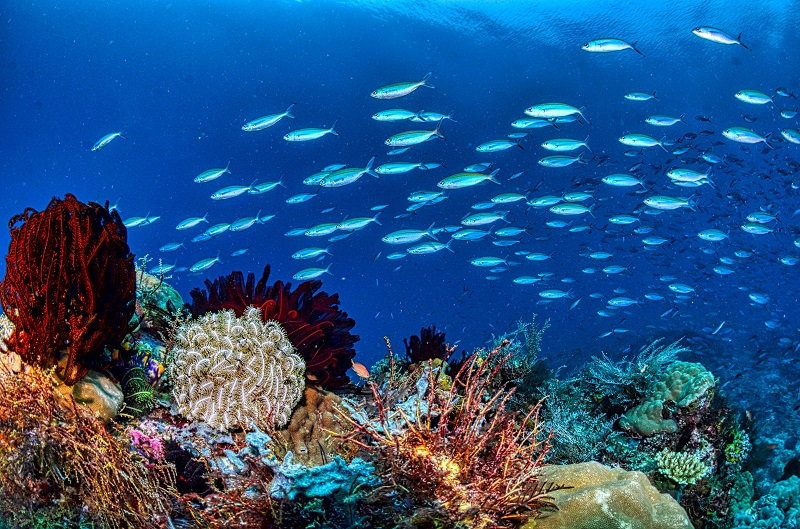
2016
DOCS established a graduate certificate in fisheries science and assessment.
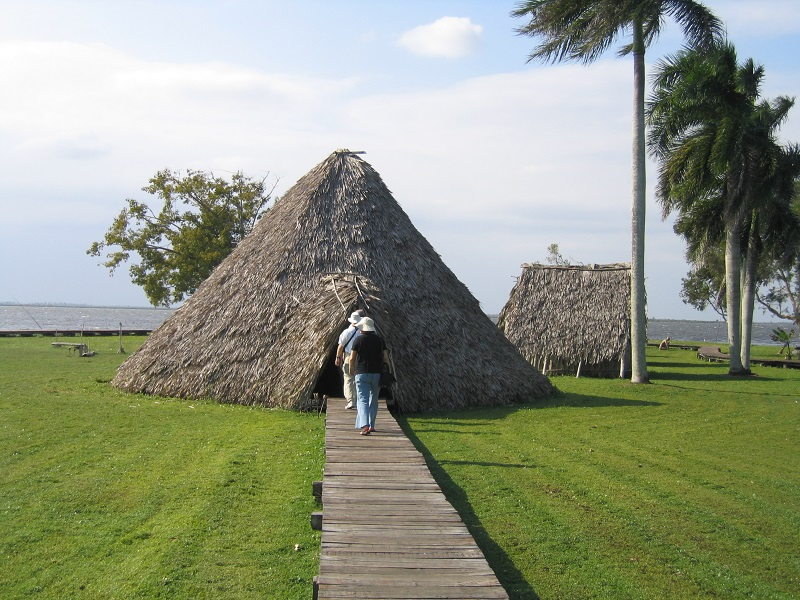
2017
A new undergraduate concentration in environmental health was established as well as the 3+2 Environmental Health program with the LSU School of Public Health, New Orleans.
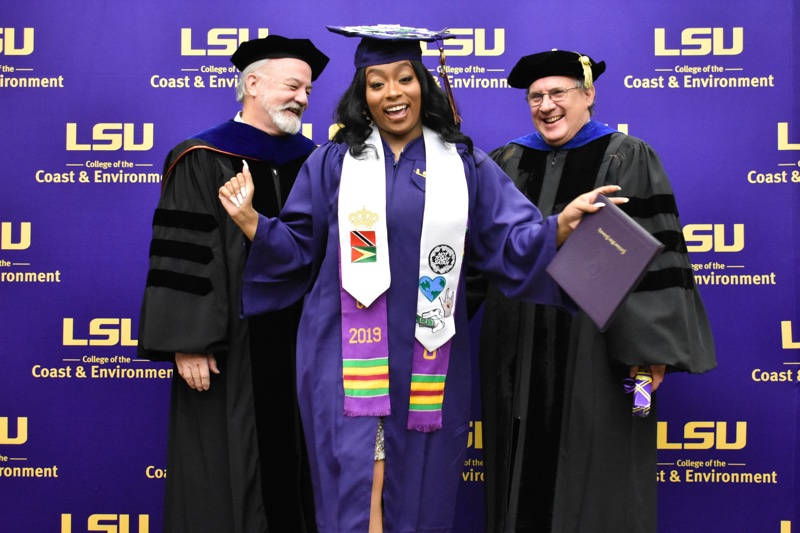
– LSU College of the Coast & Environment
2018
On its 10th anniversary, CES celebrated its 100th graduate.

2019
DOCS established a dual enrollment teacher certificate.
The Coastal Meteorology program was established, offering a graduate minor and an undergraduate concentration.
The Environmental Law program was established, offering an undergraduate concentration and a 3+3 program with the LSU Paul M. Herbert Law Center.